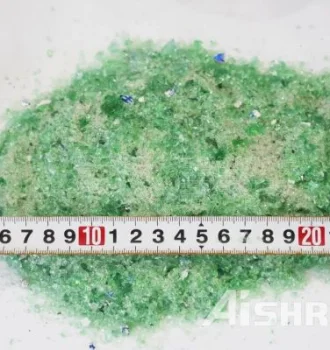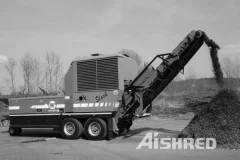
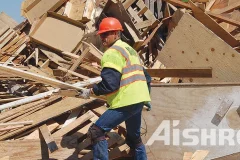
Mobile Construction Debris Shredder for Sale
2023-03-09For the disposal of construction debris, mobile temporary equipment is a better solution. AIShred's mobile crushing and shredding machines have good flexibility and passability, and can meet any temporary disposal requirements of solid waste. We also have other supporting mobile screening systems for fine management of materials. For different types of construction debris, we have a variety of equipment to meet your recycling requirements, whether it is producing recycled sand and gravel aggregates, mortar, metal or wood chips/pellets.How to get proposals and quotations?Getting a free proposal and quote from us is easy, Just tell us your title, contact information and: 1. Details of the material 2. Processing capacity per hour/day 3. Terminal products and requirements 4. Venue information (if any) After we receive your request, we will analyze it in detail, and will keep in touch with you on any unclear points during the period. Finally, you will get detailed equipment introduction, quotation and other
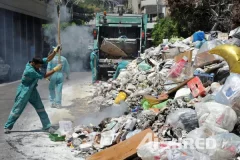
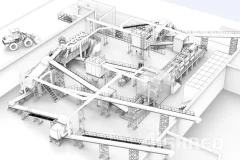
Diversified recycled products and construction waste recycling equipment with high treatment capacity have become important factors to help market development. Here are the detailed steps of construction waste recycling. The first step of construction waste treatment is to pre-screen and separate the muck for backfilling; After pre screening, the raw materials are broken into aggregates of different sizes, usually by two-stage crushing; Then the vibrating screen is used to divide the aggregate screen into different particle sizes for different purposes. Generally, the required particle sizes of sand aggregate are 0-5mm, 5-10mm, 10-31.5mm. These aggregates with different particle sizes have different uses, such as making recycled bricks, road cushion, etc. In the process of crushing and screening, manual sorting and magnetic separation equipment are also required to sort out recyclable and combustible materials for incineration power generation or RDF fuel rods. The equipment used in the whole production line
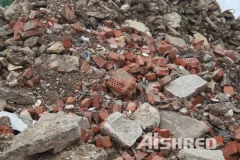
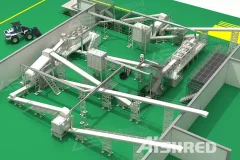
How Construction Waste is Recycled
2022-06-08The usual construction waste treatment method is mainly landfill, and the resource utilization rate is about 40%. The main components of urban construction waste include muck, concrete blocks, brick and stone tiles, sand slurry, asphalt, metal, plastic, textiles, wood, foam, glass, etc. most of them can be used as new engineering construction raw materials after treatment. After treatment, concrete blocks can be made into recycled aggregate. After treatment, 100 tons of construction waste can be turned into 88 tons of recycled aggregate, which not only solves the problem of enclosing the city with garbage, at the same time, it also protects land resources and creates economic benefits. How to deal with the construction waste? It requires a series of equipment to realize the resource treatment of construction waste, that is the construction waste treatment production line. Its work flow is that the construction waste is transported to the crushing equipment through the feeding equipment. After one or two-
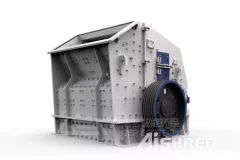
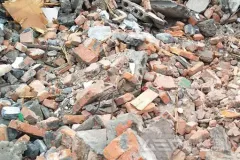
According to relevant statistics: China's annual production of construction waste more than 2 billion tons, about 8 times the amount of household waste generated, accounting for about 40% of the total amount of municipal solid waste generated, such a large proportion of the side also shows that the management of construction waste in the overall waste management occupies an important role, while the market size is huge, is still a blue ocean market, there will inevitably be a lot of environmental protection enterprises to enter this market. The main components of urban construction waste are slag, concrete blocks, masonry blocks, sand and mud, asphalt, metal, plastic, textiles, wood, foam, glass, etc. Most of them can be used as raw materials for new construction after treatment, concrete blocks can be made into recycled aggregates after treatment, 1 million tons of construction waste can be turned into 880,000 tons of recycled aggregates after treatment, which not only solves the problem of rubbish
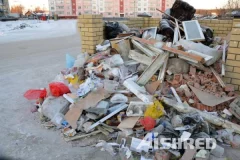
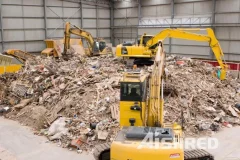
Construction Debris Grinders for Sale
2022-05-11Construction waste is generated from the various construction activities of building, maintaining, renovating, and demolishing infrastructure facilities. This is not only concrete, bricks, pieces of metal, but also dismantled doors and windows, removed linoleum, old wallpaper and so on. A common name for construction debris is construction and demolition waste(C&D waste). Construction debris must be disposed of for a fee by specialized organizations that have the appropriate license. So, many waste management companies and other investor interested in entering this field.How to Recycling Construction DebrisThere are many valuable substances in Construction Debris, metals and large wood can be recycled, small wood and plastic waste can be made into alternative fuels, concrete and bricks can be made into recycled aggregates and building fillers. After being processed by a Construction Waste Treatment Facility, only a very small portion of materials goes to landfills. Equipment for Processing Construction Debris


